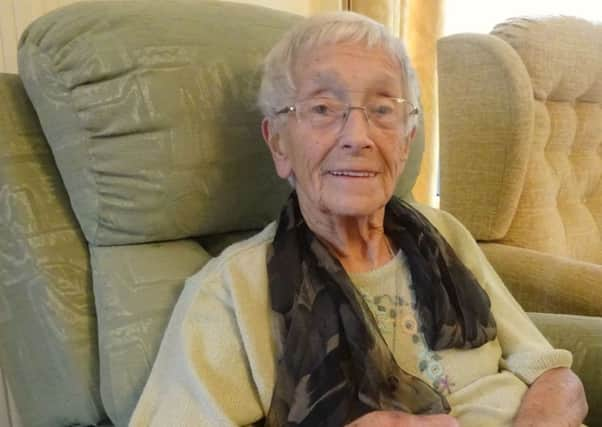Mairi O'Keefe: Who cares for the carers? Leuchie House can help


But what about when the older people are the ones providing the care? How are we supporting our growing army of senior carers?
Age UK estimates that almost one in ten people over the age of 85 provide unpaid care and that this number is set to double over the next 20 years. Most carers over 70 are believed to be providing more than 60 hours of care a week. As an issue we are increasingly aware of and concerned about at Leuchie House respite centre, I’d like to share with you one of our families’ stories.
Advertisement
Hide AdAdvertisement
Hide AdDorothy and Robert are a mother and son team who have been coming to Leuchie for occasional short breaks over the past couple of years. Robert has multiple sclerosis and his mum is his main carer.
Like many people with MS, Robert’s condition went undiagnosed for years. Always a sociable chap, he loved his job as a branch manager at the Co-op but would often suffer from intense migraines and had to be signed off from work for weeks as a time.
Regular falls from childhood onwards were, with hindsight, another tell-tale sign. However, it wasn’t until Robert’s colleagues had to carry him home from work one day that he was finally diagnosed with MS.
Dorothy’s husband had passed away a few years before and they only had each other, so they did what every loving family would do. They grouped together and Dorothy, who had never heard of MS until then, took on the role of unpaid carer for her son.
That was 24 years ago. Dorothy is now 94 and Robert is 68.
Dorothy said: “At home I am still responsible for all the shopping, cleaning, cooking and laundry. I worry about what would happen to Robert if I were to fall ill or hurt myself.”
With no option but to keep on caring, the final stage of Dorothy’s life has been very different from the relaxing retirement she may have imagined for herself.
Before they discovered Leuchie, they hadn’t had a holiday for years because they couldn’t find anywhere that could provide the care Robert needed. This is a familiar story.
Carers Scotland’s last State of Caring report revealed that, while most carers feel that having regular breaks is one of the things that would make the biggest difference, one in three hadn’t had a holiday or a weekend away in five years.
Advertisement
Hide AdAdvertisement
Hide AdDorothy explained the difference her breaks at Leuchie make: “It gives me a rest and some peace. It also helps me carry on by having something to look forward to.”
That’s something we hear all the time. When it feels like there’s no light at the end of the tunnel, caring can seem like a relentless struggle. If you know you have a short break coming up, there’s something positive and tangible to keep you going.
Then there are the added pressures of being an older carer. The day-to-day challenges are enormous. When you are frail and elderly, the additional physical and emotional stresses can be utterly exhausting, particularly if you have your own age-related health issues.
Over the past two years that Dorothy and Robert have been coming to Leuchie, her position has changed from accompanying her son for a break, to requiring care and support herself from our team. The Carers Scotland report identified the biggest barriers to having a break as cost, lack of support, lack of confidence in the care offered and lack of knowledge about how to request a break – a set of factors we hear from our guests on an almost daily basis.
If you’re in your 90s, struggling to cope with the day-to-day responsibilities of looking after someone with complex care needs, as well as dealing with your own fatigue and declining health, the prospect of navigating the information jungle to find a suitable break option, to work out how you can fund it, then plough through the mountain of paperwork that will inevitably be required is likely to be overwhelming.
We’ve entered a brave new era in Scotland. We have a landmark piece of legislation in our new Carers Act. We have local authorities working on its implementation and on determining how they will respond to their duty to provide short breaks when assessed as the best option for carers.
For Dorothy and the hundreds of thousands of people across Scotland in a similar position, we need to get this right and give them the break they need before it’s too late.
Mairi O’Keefe, chief executive, Leuchie House.